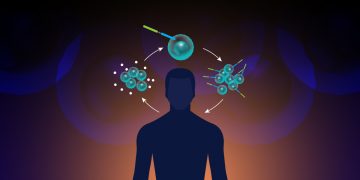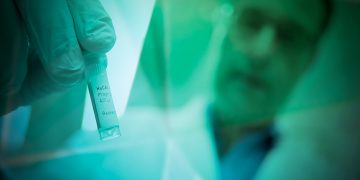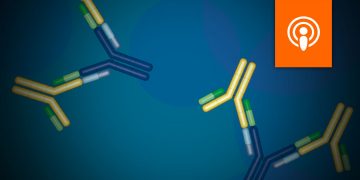
Cell Sorting and Its Significance in Stem Cell Research
Stem cells possess the remarkable potential to self-renew and to differentiate into many different types of cells. Due to their unique ability to regenerate, they are being used in regenerative medicine and offer great hope for treating diseases such as diabetes and heart disease. However, since stem cells represent a rare population of cells, they are not always easy to study. See how the simplicity, efficiency, and flexibility of cell sorting is making it possible to isolate pure populations of stem cells for downstream analyses.

Advances in Immunotherapy for Cancer
Cancer kills eight million people annually worldwide; this number will increase to 13 million by 2020. Lung, breast, colorectal, and prostate cancer are the four most commonly diagnosed cancers. Meaningful developments in immuno-oncology, or cancer immunotherapy, treatments are important now more than ever. Learn about some of the newer immunotherapies, including BiTE Antibodies and vaccines, and the companies developing them.

Apolipoproteins as Biomarkers in Heart Disease and Beyond
Apolipoproteins bind to lipids to form lipoproteins, which transport lipids throughout the lymphatic and circulatory systems. In addition to cardiovascular disease, apolipoproteins are now being linked to other diseases such as cancer, autoimmunity, and neurodegeneration. Learn more about the different types of apolipoproteins and see how they serve as biomarkers for these diseases.

Immunotherapy: The Next Frontier for Cancer
Immunotherapy is not a new concept; it has, in fact, been around for more than 125 years. However, recent scientific advances have led to the emergence and rapid evolution of the field, especially immuno-oncology. Get an introduction to this exciting emerging field, learn about the different personalized therapies currently available, and see what the future of cancer immunotherapy looks like.

Practical Experimental Design for Mixed-Mode Resins
Could you be missing opportunities to make the most of your time spent on protein chromatography experiments? Learn more about how Bio-Rad uses design of experiments (DoE) and our mixed-mode resin, Nuvia™ cPrime™, to optimize process-scale protein purification.

Speed Time to Results by Incorporating Flow Cytometry into the CRISPR‑Cas9 Gene Editing Workflow
The power to edit a gene is the power to change its function, and with it the biology of a cell. From generating novel cell lines and better animal models for the discovery and preclinical phases of therapeutic research to actually creating a therapeutic itself, CRISPR gene editing is allowing science to advance rapidly. See how enrichment and cell sorting can help generate edited cells faster and more reliably.

Discover the Technology behind Bio-Rad’s Custom Recombinant Antibodies
See inside Bio-Rad’s custom antibody facility and learn how specific antibody requirements can become a reality through the use of Human Combinatorial Antibody Library (HuCAL®) technology for specialized custom antibodies.

The Importance of In Vitro Assays in the Development of Biosimilars
In this podcast, biosimilar expert, Amanda Turner, provides an in-depth explanation of the various in vitro assays used in biosimilar development and the importance of choosing the right assay type and components to achieve success.

Understanding Biomarkers for Better Drug Discovery and Development
Biomarker intelligence comes from understanding the biomarker landscape, that is, the characteristics and features of biomarkers, and disease pathways. This understanding, in turn, helps to recognize the utility of biomarkers. In this study, we partnered with Amplion Inc., to investigate biomarker usage in 24 immunotherapy companies. We found the most popular biomarkers and learnt how they are being used by each company.

Biosimilars. Are They Ready for Primetime?
Is the hype surrounding biosimilars real or simply a hopeful view on an exceedingly expensive drug market? Read this article to find out more about biosimilars and understand the challenges facing the biosimilars industry.
